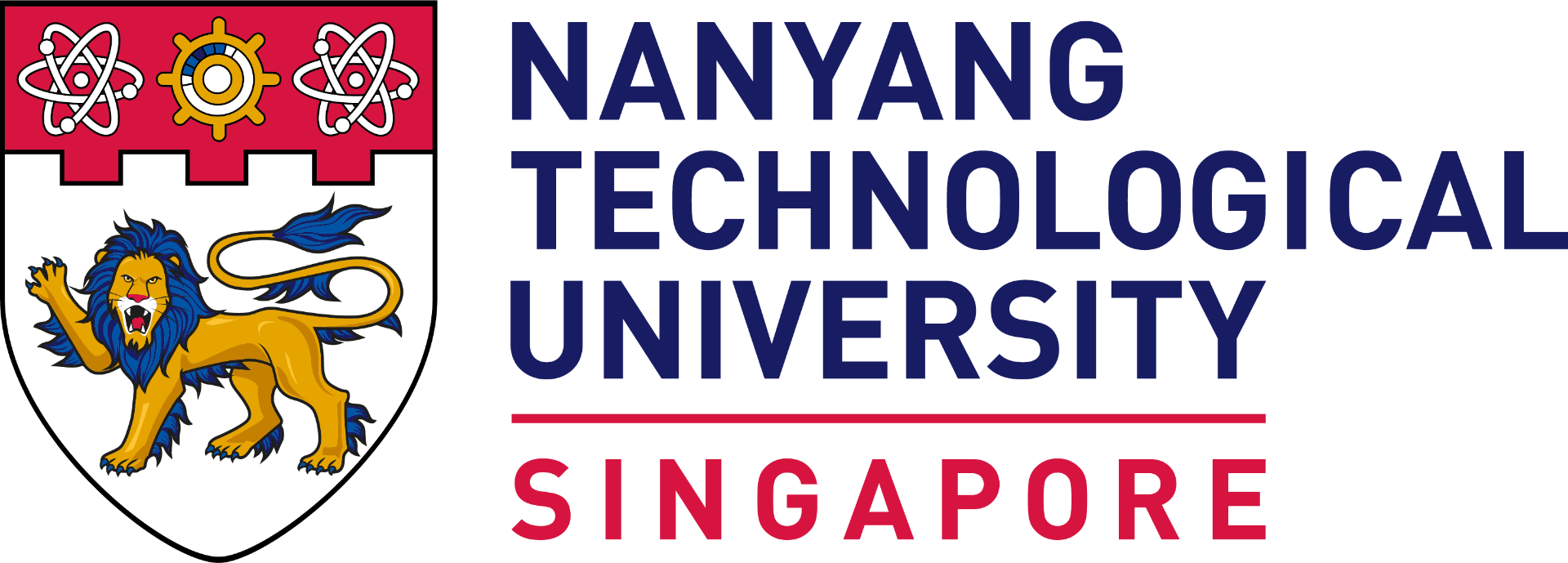
While most people retreated indoors at the start of the COVID-19 crisis in 2020, NTU freshman Robert Querimit hit the roads as a food delivery rider to boost his finances.
His family was facing a tight financial situation, and the gig, though risky and tiring, offered the Singaporean undergrad flexibility and decent pay.
In his first year in NTU, Robert made about 10 food deliveries each day while studying full time. If he had a two-hour break between his Zoom classes in chemical and biomolecular engineering, he’d squeeze in two to three orders on his motorcycle.
“I was on the road about eight hours daily, so there was always the risk of accidents. My motorcycle would skid when it rained or if I hit a pothole,” he recalls.
Customers often scolded him for the long wait times too. “But I tried not to take their complaints to heart, as I understand their frustrations too,” he says.

Robert interned as a process and equipment engineer with Micron in his second year at NTU.

With his mentor, Cambridge PhD student Aniket Chitre, during his research internship with A*STAR. The internship led to Robert co-authoring two research papers on using machine learning to accelerate shampoo formulation.
Cruising through the crisis
Despite these setbacks, Robert remained upbeat and resilient. As he moved into his second and third years at NTU, he discovered the heady world of research and stopped delivering food.
His love of and flair for research unexpectedly paved the way to new streams of income. He also received help from NTU bursaries that offset his tuition fees from his second to fourth year.
Through NTU’s work-study programme, he put in hours as a part-time research assistant, helping his chemical engineering professor, Asst Prof Tej Choksi, optimise sonochemical reactions, which is the use of sound waves to transform substances.
He also did internships with Micron and the Agency for Science, Technology & Research (A*STAR).
In his third year, he worked on an interdisciplinary engineering project as a research intern under NTU’s Assoc Prof Kedar Hippalgaonkar.
The study with A*STAR aimed to use machine learning to speed up shampoo formulation, which usually takes years.
A paper on the project findings that he co-authored was recently published in a prestigious journal. This is the second paper he has published so far.
He also dabbled in biomedical research, growing cells in labs to explore new ways to combat viruses, as part of a project under NTU’s Undergraduate Research Experience on CAmpus (URECA) programme.
Reflecting on his four fruitful years at NTU, Robert says:
“I never thought I’d go into research before this. But I received so many wonderful opportunities to try my hand at it. NTU’s brilliant faculty also opened me up to new possibilities and let me take on different kinds of engineering work. I’ve found my path in process systems engineering, and I’m eager to give back to society through my future work.”
Great chemistry around every corner
For Robert, friendships are a big part of his NTU experience. Due to the pandemic, his own orientation as a freshman in 2020 was virtual, but he enjoyed meeting new people so much he later became a group leader and committee member for similar camps run by his school and NTU’s Cultural Activities Club.
“I also joined outreach activities like open house and tea sessions for prospective students to inspire them to study chemical engineering at NTU,” he adds. His enthusiasm even led him to become a peer tutor for a process control and dynamics module.

Great chemistry: Robert (far right) with his final-year project groupmates.
Seven PhD scholarship offers
Robert’s diverse research experiences in school and during his internships allowed him to find his niche in process systems engineering.
“Process systems engineering is about analysing and solving complex, large-scale optimisation problems in the chemical field. It’s quite satisfying to work on these problems and come up with a solution,” he says.
“I find it meaningful to contribute to sustainability through this field. For example, one challenge is integrating renewable energy into the energy grid effectively. We have to consider factors like economic viability, storage and intermittency, which is the unreliability of sources like solar power since the sun doesn’t shine all the time.”
In August, Robert will begin his PhD studies in chemical engineering at Carnegie Mellon University, which has a well-known process systems engineering programme. He will be on a scholarship and will receive a monthly stipend for living expenses while studying in Pittsburgh.
Assoc Prof Kedar, Assoc Prof Raymond Lau, Asst Prof Tej and Asst Prof Paul Liu not only advised him on crafting a standout PhD application, but also wrote him recommendation letters.
When Robert received seven PhD scholarship offers, they helped him assess the offers based on growth opportunities and guided him in choosing a research team he would work well with.
CLASS OF RESIILIENCE
The COVID-19 outbreak stripped their early uni years of normalcy as Zoom classes took over and socialising became difficult. But in uncertainty and challenges come opportunities as these grads from the Class of 2024 show
This story was published in the Jul-Aug 2024 issue of HEY!. To read it and other stories from this issue in print, click here.



